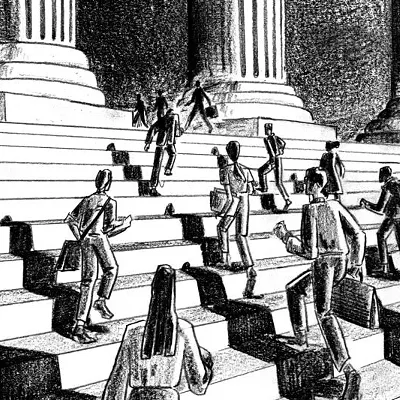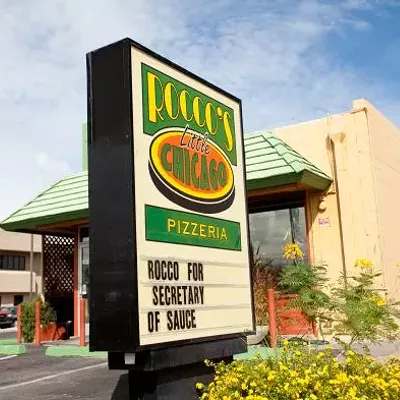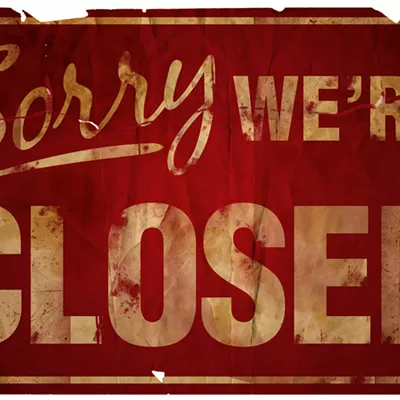When the Atlantic Monthly published an excerpt from Kaplan's book in the summer of 1998, then-mayor George Miller responded with a letter to the editor extolling Tucson's virtues and calling Kaplan's piece "hostile in tone and content." Other politicians joined the chorus to provide damage control, discredit the author's observations and offer an alternative view of the city as a sterling example of a Sunbelt community.
Kaplan devoted several chapters to Arizona, three to Tucson alone. When I first read the book shortly after publication, I was struck not by any tone of hostility, but rather by the author's astute analysis and ability to place Tucson in a larger historical framework. Kaplan wasn't wrong; he was dead right.
Seven years ago, Kaplan referred to Tucson as a bifurcated city. This was before multi-million-dollar homes in the Catalina foothills became commonplace.
And it was before La Encantada, the upscale shopping center at Skyline Drive and Campbell Avenue, was constructed to cater to a certain segment of the population while the proliferation of 99-cent stores provides for the rest of us.
The extent of the sharp--and growing--divide between the foothills and the valley is undeniable. All it takes is a jaunt north followed by a trek south to prove it.
At one corner of La Encantada sits AJ's, a supermarket billing itself as a "Purveyor of Fine Foods." AJ's entrance is notable for an ambience reminiscent of Northern California's Marin County. An abundant bed of colorful flowers greets the shopper; beautifully tended potted plants, available for purchase, sit just outside the door, as does a chalkboard announcing the day's specials. One catches my eye: fresh halibut fillets at $11.99 per pound.
To the left of the entrance is a covered patio where shoppers can recover from the onerous job of spending money with a cup of coffee or cooked-to-order lunch. Everyone is well-dressed. And everyone is white.
To your immediate left as you enter the store is a bakery, but above the display cases overflowing with decadent cakes and pastries dripping with excess is the word boulangerie. The tone is set: This place has class.
In most supermarkets, the glare of hundreds of fluorescent lights and the blare of bad music accompany you as you make your way through the aisles. AJ's lighting is muted, almost dim, and if any music is playing, I don't notice. But I do notice the pristine ceramic tile floor, or maybe it's terrazzo. Whatever it is, it's not what you find at your neighborhood market. Neither are the prices.
Among the large selection of imported drinking water, I find bottled artesian water from Norway at $3.59 for 27 ounces. A two-liter bottle of Coke runs $1.39, and the least expensive ground beef is $3.59 per pound. One bunch of collard greens is $1.59, and a hankering for nectarines, peaches or apricots doesn't have to be denied simply because it's January--AJ's has them all.
The emporium features organic baby food for the youngest set. A six-ounce jar of fruit costs 99 cents, and in the same area, I spot another necessity: baby shampoo from Italy.
At the checkout line, I find no screaming headlines about celebrities giving birth to aliens. There are no tabloids, no rows of candy, no magazines urging casual readers to lose weight--just an understated handful of tastefully displayed items.
The scene is different at Food City (which, along with Bashas', is owned by the same company as AJ's) on the corner of 22nd Street and Country Club Road. At the entry, I am greeted not by flowers, but by an overflowing trash bin and a sign above the doorway shouting "Checks Cashed." To my left as I enter is a wall with chips and soda, and to my right is an enclosure where folks can purchase money orders, cash checks, send money to Mexico or even get a loan.
Fiesta drinking water runs two gallons for a dollar; two-liter bottles of Coke costs 99 cents, and high-fructose corn syrup is an ingredient even in the three "whole grain" breads offered. Beef neck bones are priced at $1.20 per pound, with ground beef at $1.99. Collard greens are 99 cents for two bunches. There is no organic baby food available. There are no edible flowers in the produce section, and no nectarines in sight.
The checkout area is a chaotic jumble of sweets, magazines, sodas and, in one corner, a forgotten container of flowers. "Small bouquet, $4.99," the sign reads. There are no garden plants, no place to relax over coffee and nowhere to sit.
Kaplan's Tucson chapters are in a section titled "Separate Nations." The question is not whether Tucson's bubble will burst, but what the impact will be on the city's economic and cultural divide when it does.






